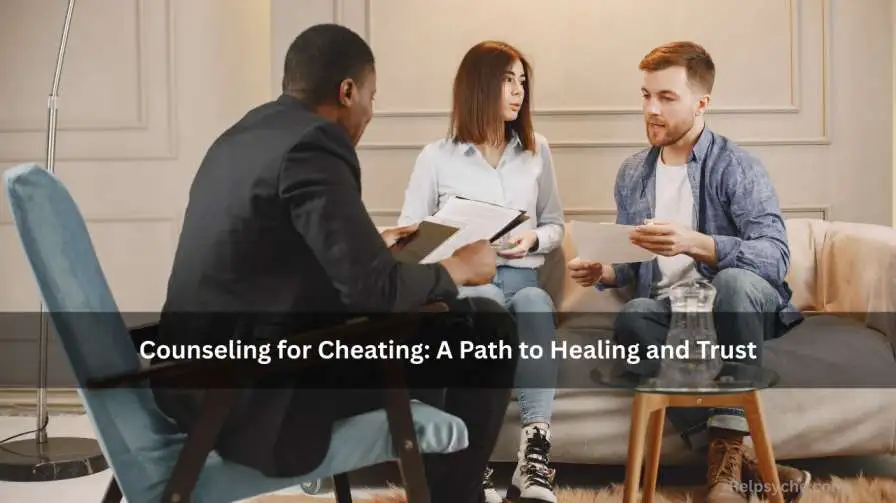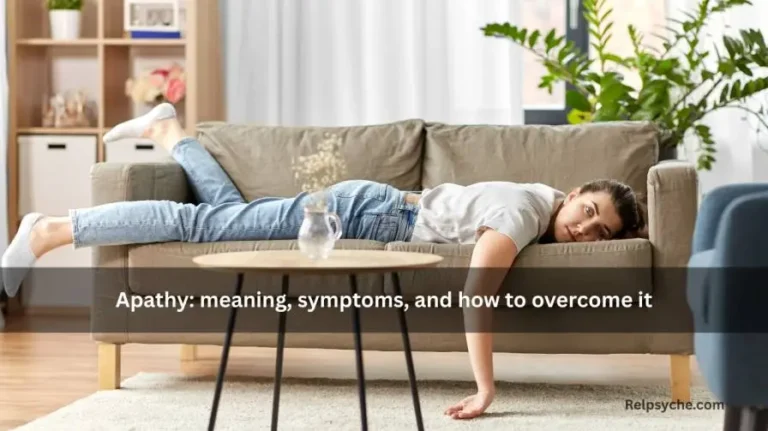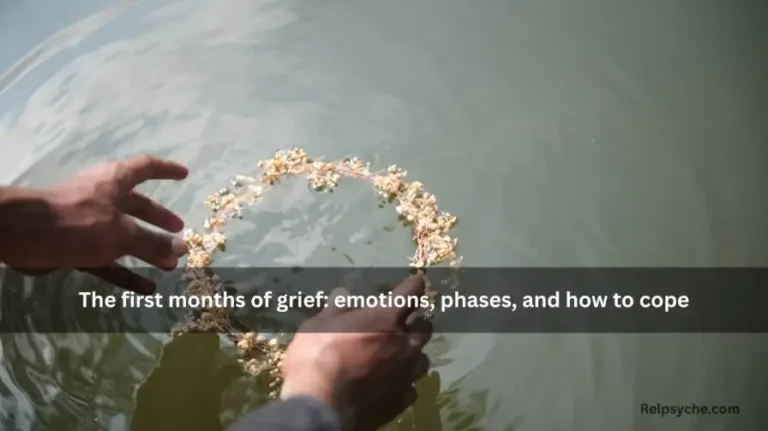Counseling for Cheating: A Path to Healing and Trust
Counseling for cheating is often the first step many couples take after betrayal. When someone cheats, the pain cuts deep. Trust is broken, and both partners feel lost. Some may feel anger, sadness, or shame, while others may feel confused about what to do next. Many people think cheating means the end of a relationship, but that is not always true. With the right help, healing is possible.
If you or your partner have faced infidelity, counseling for cheating can guide you. A trained therapist gives both sides a safe space to talk, understand feelings, and decide the future. This process does not promise an easy fix, but it opens the door for honest conversations, forgiveness, and rebuilding trust.
Table of Contents
Why Counseling for Cheating Matters
Cheating damages not only the relationship but also personal self-esteem. Here’s why counseling for cheating is important:
- Safe communication – Both partners can speak openly without yelling or blame.
- Understanding the cause – A counselor helps uncover why the cheating happened.
- Healing from pain – Betrayed partners need support to release hurt.
- Rebuilding trust – Trust is not repaired overnight; counseling gives step-by-step help.
- Deciding the future – Some couples rebuild, while others part ways with peace.
Common Feelings After Cheating
When someone is cheated on, emotions run high. Counseling for cheating helps both partners process these feelings:
- Anger and betrayal
- Fear of being hurt again
- Loss of self-worth
- Guilt (for the one who cheated)
- Confusion about staying or leaving
Without counseling, these feelings may stay buried and cause bigger problems later.
How Counseling for Cheating Works
Counseling for cheating is not a one-time talk. It is a step-by-step process that gives couples the tools to face the pain and find a way forward. Every relationship is different, but most counseling sessions follow some common steps.
1. Individual Sessions
At first, the counselor may meet with each partner alone. This is important because many people feel safer sharing their private thoughts without judgment. In these sessions, the betrayed partner can express the depth of their hurt, while the partner who cheated can share feelings of guilt or confusion.
2. Couple Sessions
After individual sessions, both partners meet together. In these sessions, counseling for cheating focuses on creating safe communication. The counselor makes sure both voices are heard without shouting, blame, or shutting down. This is often the hardest part, but it helps both partners understand each other’s emotions clearly.
3. Setting Boundaries
A big part of counseling for cheating is learning to set new and healthy boundaries. The couple may agree on being more open with phone use, social media, or daily routines. Boundaries are not meant to control, but to rebuild trust slowly and give both partners a sense of safety.
4. Rebuilding Trust
Trust is the hardest thing to restore after betrayal. The counselor may guide couples through small exercises, like sharing feelings daily, practicing honesty, and rebuilding emotional closeness one step at a time. This process can take weeks or even months, but counseling for cheating gives couples the structure to move forward without rushing.
5. Understanding the Root Cause
Cheating doesn’t happen in isolation. A counselor helps uncover the deeper issues behind the act. This could be a lack of communication, unmet emotional needs, personal struggles, or unresolved conflicts. By addressing the root cause, couples can prevent the same mistakes in the future.
6. Learning Forgiveness and Patience
Counseling for cheating also teaches forgiveness—not as forgetting, but as a way to release heavy pain. Both partners learn patience, because healing is not instant. The betrayed partner must take time to trust again, while the one who cheated must be patient and consistent in their actions.
7. Future Planning
At the end, the counselor helps couples decide what comes next. Some choose to rebuild the relationship, while others choose to part ways with respect and closure. Either decision brings clarity and healing, which is the true goal of counseling for cheating.
Benefits of Counseling for Cheating
- Better communication – Partners learn to listen and talk without blame.
- Emotional healing – Both the betrayed and the betrayer get support.
- Understanding triggers – Couples see what led to the cheating and how to prevent it in the future.
- Growth for individuals – Counseling also helps people learn about their needs, values, and boundaries.
- Stronger connection – Some couples, after hard work, end up closer than before.
Can a Relationship Survive Cheating?
Many people ask if love can survive betrayal. The truth is yes, but it depends on effort from both partners. Counseling for cheating does not guarantee success, but it gives tools for healing. Some relationships end, but others rebuild into something even stronger. The key is honesty, patience, and commitment to growth.
Self-Healing Tips Alongside Counseling
While counseling for cheating is powerful, personal healing matters too. Here are steps you can take:
- Take care of your body – Eat well, rest, and exercise to reduce stress.
- Write your feelings – Journaling helps release emotions.
- Avoid blame games – Focus on healing, not only on anger.
- Lean on support – Friends or family can give comfort.
- Practice forgiveness – Forgiveness does not mean forgetting, but it frees you from pain.

Conclusion
Counseling for cheating is not about forgetting the past but about choosing how to move forward. Whether you want to save the relationship or find peace alone, counseling gives guidance, clarity, and emotional healing. Cheating breaks trust, but with effort and professional support, it is possible to heal, rebuild, and grow stronger.
Ready to take the next step in your personal growth? Explore expert services — from therapy to life coaching — available on Fiverr.
If you want to read more articles similar to Counseling for Cheating: A Path to Healing and Trust, You Need to Know we recommend that you enter our Psychology category.
FAQs
1. What is counseling for cheating?
Counseling for cheating is therapy for couples or individuals after infidelity. It helps address emotions, rebuild trust, and decide the future of the relationship.
2. Can counseling for cheating save a relationship?
Yes, many couples rebuild their bond through counseling. Success depends on honesty, commitment, and effort from both partners.
3. How long does counseling for cheating take?
It varies. Some couples need weeks, while others need months or longer. Healing from betrayal is a slow but steady process.
4. Do both partners have to attend counseling for cheating?
It works best when both attend, but even individual counseling helps one partner heal and gain clarity.
5. Is forgiveness possible after cheating?
Yes, but it takes time. Counseling helps partners understand emotions, rebuild trust, and move toward forgiveness step by step.
References
- American Psychological Association. (2023). Infidelity: Can relationships survive? APA. Retrieved from https://www.apa.org
- Glass, S. P., & Wright, T. L. (1997). The role of infidelity in divorce and marital distress. Journal of Family Psychology, 11(3), 373–386. https://doi.org/10.1037/0893-3200.11.3.373
- Gordon, K. C., Baucom, D. H., & Snyder, D. K. (2004). An integrative intervention for promoting recovery from extramarital affairs. Journal of Marital and Family Therapy, 30(2), 213–231. https://doi.org/10.1111/j.1752-0606.2004.tb01235.x
- Mayo Clinic. (2022). Infidelity: Mending your marriage after an affair. Mayo Foundation for Medical Education and Research. Retrieved from https://www.mayoclinic.org
- Olson, M. M., Russell, C. S., Higgins-Kessler, M., & Miller, R. B. (2002). Emotional processes following disclosure of an extramarital affair. Journal of Marital and Family Therapy, 28(4), 423–434. https://doi.org/10.1111/j.1752-0606.2002.tb00367.x

I’m Emma Johnson, a psychologist who loves to write and share ideas.
I enjoy making psychology simple so everyone can understand and use it in daily life.
If you’d like to talk, ask questions, or work together, feel free to reach out.
Let’s learn and grow in the world of psychology together!







